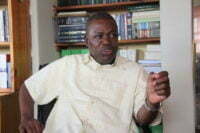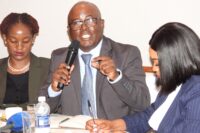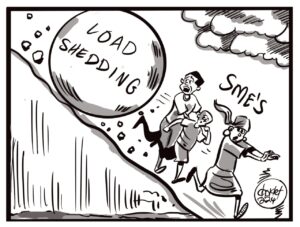Citizens have been calling us to say, “Can you the journalists help us understand. Government is saying they are about to start importing power from South Africa just for one month at a cost of at US$21 million. What happens after the one month ends? What is the next plan? What is the long term solution to this devastating energy crisis that has hit us?”
Unfortunately, we, too, don’t know. We have no idea what will happen after the one-month power import comes to an end. When we ask, the answers from government range from “switch and serve” to “find alternative sources of energy”. But we would like to believe that the best institution to answer these questions is the Industrial Development Corporation (IDC).
We find it strange that since the energy crisis in Zambia reached an unprecedented peak, we have barely heard from the IDC, the State established company that owns Zesco 100 per cent. In our view, the lies, the debts, the worsening load-shedding, the disputes in the power import contract need to be explained by the IDC; not Honourable Dora Siliya or the Energy Minister. We want to hear the voice of the IDC Chief Executive or better still the IDC board chairperson, who happens to notoriously double as Head of State.
We say Honourable Mathews Nkhuwa must keep quiet because Zesco is owned by IDC and the minister of Energy, as far as we know, is not anywhere on the board of the IDC. How can a non-board member of a company be announcing investment plans and operations of the institution?
This confusion needs to be addressed. The Zesco managing director, as far as we know, is answerable to the IDC, not the Minister of Energy. The minister’s role with Zesco ends at defining the general government policy for the energy sector as discussed in Cabinet. In fact, IDC can hold the Zesco CEO accountable or even dismiss him for incompetence, the energy minister cannot. The IDC can remove the Zesco board, but the minister has no such powers over Zesco because the company belongs to IDC 100 per cent. So what can Honourable Nkhuwa talk about? What binding assurance can he give to the people about how Zesco plans to deal with this load-shedding crisis?
This is why we find it an anomaly that the people’s anger is directed at employees of Zesco while the IDC, which now owns the power utility on behalf of the citizens, is hiding its face. When Zesco issued a statement that the extended load-shedding hours were a result of the breakdown of machines at Maamba Collieries, IDC was quiet. When it was established that Zesco lied about this and that the reason was because of the US$147 million debt owed to the energy supplier, IDC remained mute as if it is an issue that doesn’t concern them. Why is the IDC ‘hiding’ in the face of this adversity?
People don’t want to hear government officials who have no control over Zesco giving answers to the energy crisis. We don’t want to hear from Honourable Siliya or Honourable Nkhuwa. We want to hear from the owners of the company.
We are saying to IDC: you can’t hide from your own shadow. This crisis at Zesco is your baby. The DNA suits you 100 per cent. Stand up and take responsibility. Face the people and explain why Zesco has been grounded to a halt, almost. Before IDC came to be, Zesco was struggling, but it never got to this level of management failure. How has the IDC improved Zesco operations and efficiency since the takeover?
We find it strange and suspicious that these questionable power import contracts, dragging power generation projects, proposed electricity tariffs and the debts that Zesco is struggling to settle are being discussed outside the IDC umbrella as if this is outside their jurisdiction.
During a press conference, President Edgar Lungu was heard giving a directive to Zesco to complete the 120 Megawatts solar project, but himself as IDC board chairman has failed to give an update on the 600 Megawatts which he promised through scaling solar under IDC.
The IDC has a lot of questions to answer. They need to explain what is going on with Zesco and the solutions which they are putting on the table. People are asking: “How will this tariff increase reduce the cost of doing business? How will it support the growth of small businesses, the manufacturing industry and attract new investments? After the one month importation of power, what next?”













One Response
Confusing corporate governance at zeaco. The problems at ZESCO are on the shoulders of ZESCO management, the Board of zeaco accoutable to so called IDC. By the way we need to look at ZESCO financial accounts, annual reports. So we assess their operations and financial position.